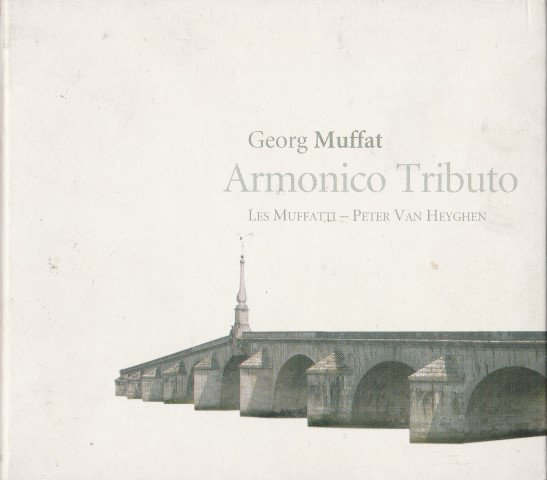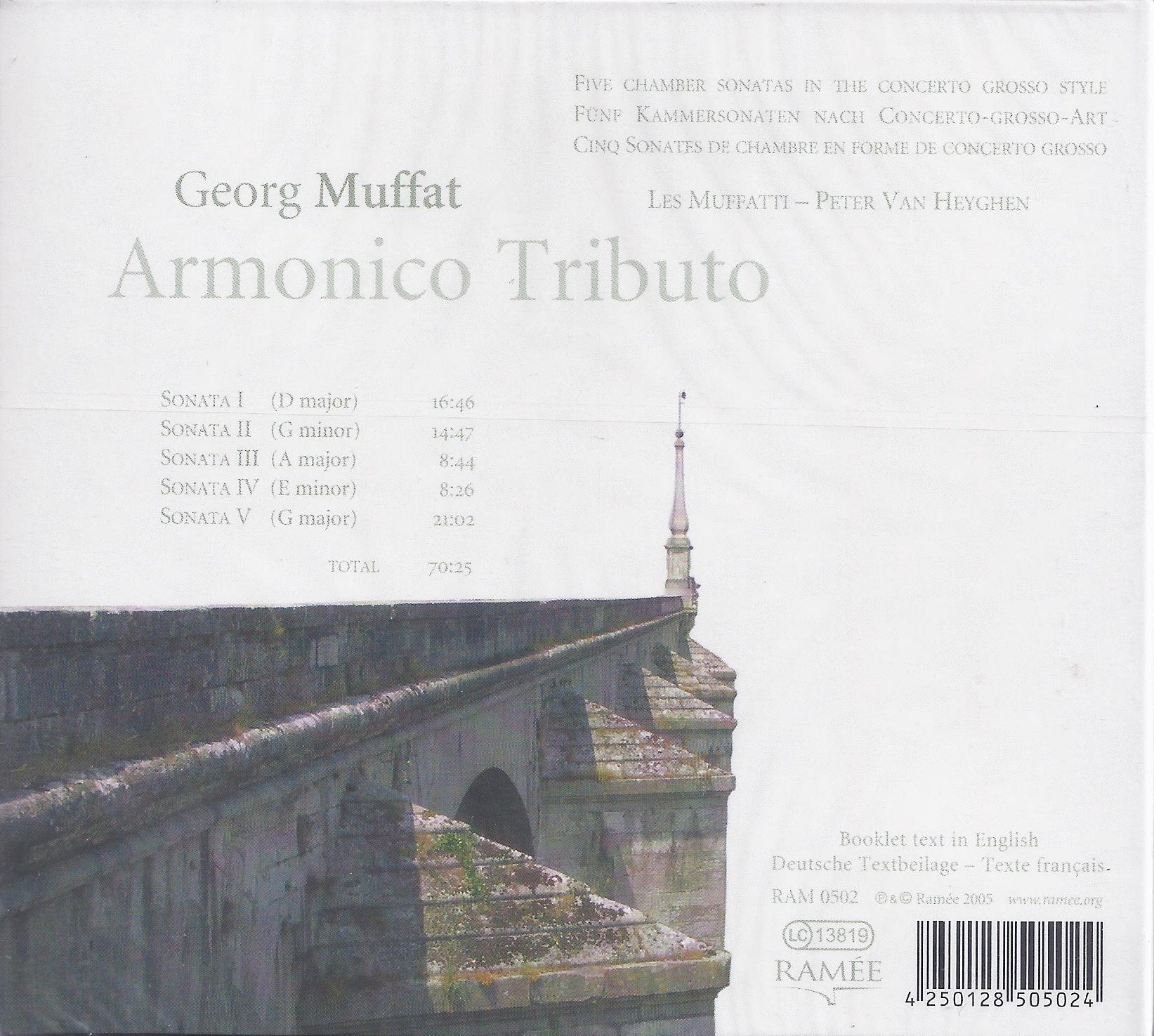
kompozytor
Muffat, Georg
tytuł
Muffat: Armonico Tributo
wykonawcy
Les Muffatti;
Heyghen, Peter Van
Heyghen, Peter Van
nr katalogowy
RAM 0502
opis
Anyone who delves even a little deeper into the work of Georg Muffat, whether as a musicologist, performer or lover, sooner or later comes to the conclusion that Muffat is not being given the place of honour in today's musical life that he actually deserves. His merits in the fields of composition and pedagogy are generally acknowledged in the specialist literature, but for the general public he remains for the time being in the shadow of truly "great" contemporaries such as Jean-Baptiste Lully, Arcangelo Corelli or Heinrich Ignaz Franz Biber - to name but three with whom he has had personal contact. Perhaps this is due to the fact that relatively little, and almost exclusively instrumental music by Muffat has survived. The fact that the composer never once in his entire career was given a position in one of the major European music centres cannot be the reason: other musicians have achieved great fame under the same conditions. Could it be because Muffat is so difficult to classify stylistically? His work and the associated performance practice are a synthesis of at least three different styles and traditions. But the fact that this was by no means a coincidence, but on the contrary constituted the central point of Muffat's personal aesthetic goals, and that he was one of the first to strive for this synthesis so explicitly and repeatedly and to implement it masterfully, should perhaps be precisely the reason why he belongs in the ranks of the greats.
nośnik
CD
gatunek
Muzyka klasyczna
producent
Ramée
data wydania
07-11-2005
EAN / kod kreskowy
4250128505024

(Produkt nie został jeszcze oceniony)
cena 79,00 zł
lubProdukt dostepny w niewielkiej ilości.
Wysyłka w ciągu 3 dni roboczych
Darmowa wysyłka dla zamówień powyżej 300 zł!
Darmowy kurier dla zamówień powyżej 500 zł!
sprawdź koszty wysyłki





































